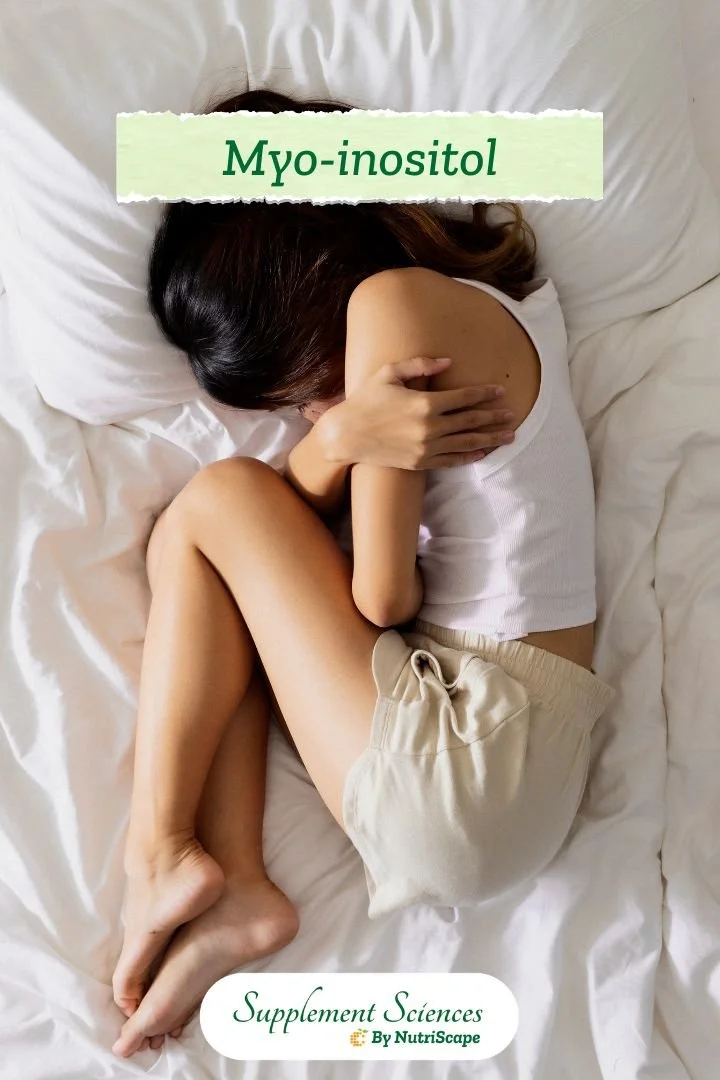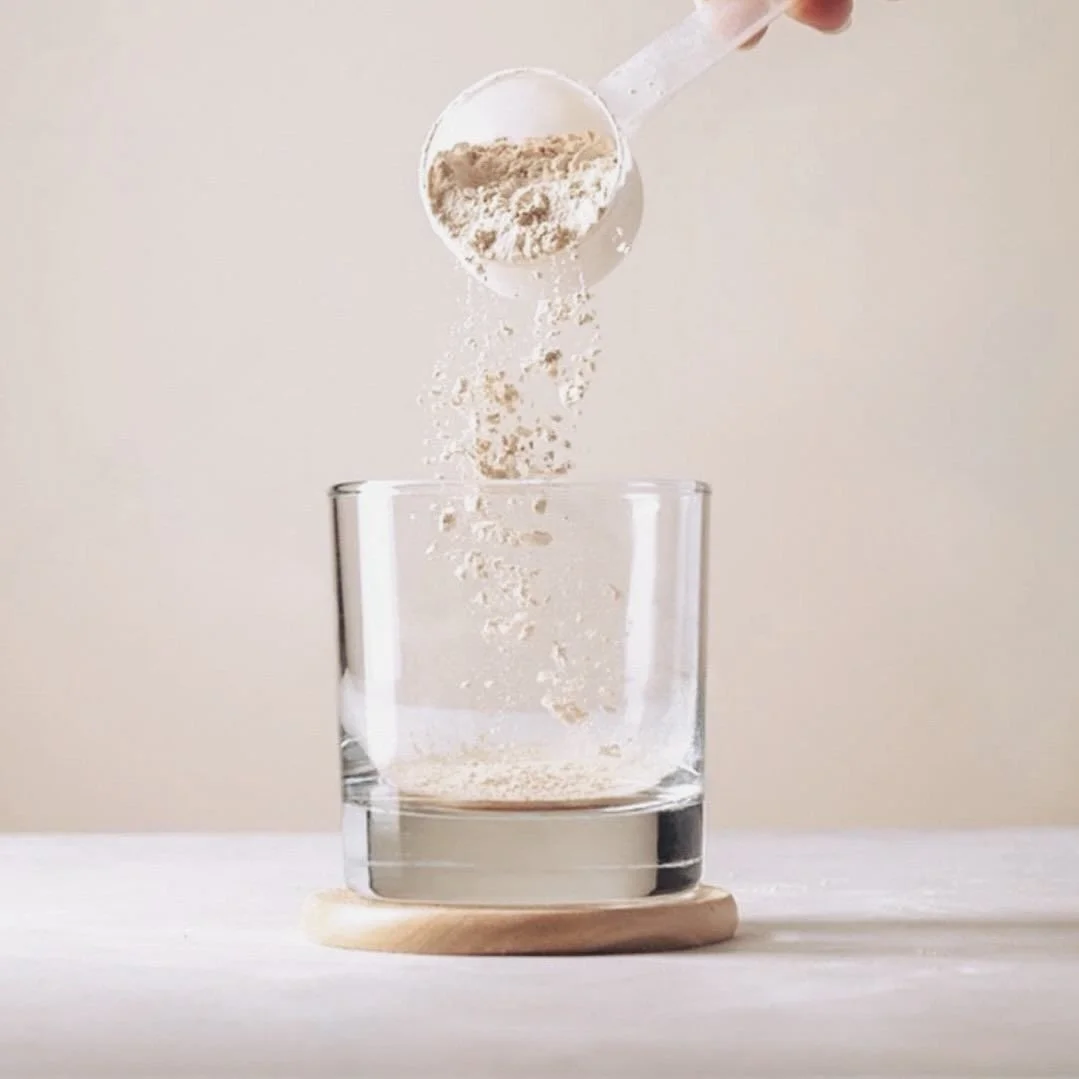From PCOS to Cramps to Insulin Resistance: Is Inositol the Fix Everyone’s Talking About
It seems like overnight, inositol has gone from a little-known supplement to a TikTok sensation, a buzzy name whispered among the wellness set and in beauty circles. But beyond the viral praise and the #hormonehealth hashtag, what's the real story? Is this natural compound truly a game-changer for everything from PCOS to anxiety, or is it just another passing trend?
What Is Inositol, Really?
First things first, let's clear up the confusion. Often referred to as Vitamin B8, inositol isn't actually a vitamin. It's a type of sugar molecule found naturally in our bodies and in foods like citrus fruits, beans, and whole grains. In supplements, you'll most often see two forms: myo-inositol (MI) and D-chiro-inositol (DCI), which are the most-studied and believed to be the most beneficial.
Inositol's role in the body is complex and crucial. It acts as a secondary messenger, helping your cells communicate, especially when it comes to insulin and key neurotransmitters like serotonin and dopamine. Think of it as a cellular switchboard operator, making sure the right signals get sent to the right places.
The Doctors' Take: Does It Actually Work?
This is where the editorial-style deep dive comes in. While the science on inositol is still evolving, a significant body of research points to promising results, particularly for a few key conditions.
PCOS (Polycystic Ovary Syndrome): This is the area where inositol has the most powerful evidence. For many with PCOS, a primary issue is insulin resistance, which can lead to hormonal imbalances, irregular periods, and infertility. Doctors are increasingly seeing inositol as a valuable tool. A systematic review and meta-analysis of multiple studies found that inositol supplementation significantly increased menstrual cycle normalization, lowered BMI, and reduced total testosterone levels in women with PCOS. It has also shown promise in improving ovarian function and fertility. [1, 2, 3]
Insulin Resistance and Metabolic Syndrome: Inositol helps improve the body's sensitivity to insulin, which can aid in managing blood sugar levels. A study in postmenopausal women with metabolic syndrome found that inositol improved insulin sensitivity, blood pressure, and cholesterol levels. [4]
Mental Wellness: Inositol is involved in the function of neurotransmitters, and some studies suggest it may help with certain mood disorders. High doses have been shown to reduce panic attacks in individuals with panic disorder and may help with obsessive-compulsive disorder (OCD). However, more research is needed, and the results are not as conclusive as they are for PCOS. [4, 5]
Who Is It For? The Inositol Muse
If you identify with the modern woman's struggle with hormonal balance, stress-induced breakouts, or an on-and-off relationship with sugar cravings, inositol might be for you. It's particularly targeted for those dealing with:
PCOS: This is the primary demographic where inositol shows the most dramatic benefits.
Insulin Resistance: If you have symptoms like weight gain around the middle, sugar cravings, or fatigue, inositol may help your body use insulin more efficiently.
Irregular Periods: For some, inositol has been shown to help regulate menstrual cycles, especially when irregular periods are linked to insulin resistance.
The Must-Knows: Who to Avoid & Vitals to Check
While inositol is generally considered safe, it’s not for everyone. As with any supplement, it's crucial to consult with your doctor before adding it to your routine.
Who Should Be Cautious or Avoid:
Pregnant and Breastfeeding Individuals: While some studies show inositol to be possibly safe during pregnancy, there is not enough data to confirm safety during breastfeeding. Always consult a doctor first. [5, 6]
Anyone on Diabetes Medication: Because inositol can lower blood sugar, combining it with diabetes drugs might cause blood sugar to drop too low. Monitor your blood sugar closely under a doctor's supervision. [5]
Those with Bipolar Disorder: Some research suggests high doses could potentially trigger a manic or hypomanic episode. [5]
High-Dose Users: In doses greater than 12 grams per day, mild side effects like nausea, gas, and diarrhea are more common. [7]
Lab Vitals to Consider: Before starting inositol, your doctor may recommend a few key tests to get a baseline for your health and confirm if inositol is right for you. These tests are especially important if you suspect PCOS or insulin resistance.
Glucose & Insulin: A glucose tolerance test, fasting glucose, and fasting insulin levels can assess your body's response to blood sugar.
Lipid Panel: Checking cholesterol and triglyceride levels can give insight into your metabolic health.
Hormone Panel: For women, a test for reproductive hormones like testosterone, estrogen, FSH, and LH can help confirm a PCOS diagnosis and track progress. [8]
The Takeaway
Inositol isn't just a beauty trend; it's a promising and well-researched supplement with the potential to genuinely improve hormonal and metabolic health for many. Its rise on social media may be about "on-trend" wellness, but its staying power comes from its real, science-backed benefits.
Ultimately, inositol can be a valuable tool, but like all things on your wellness journey, it’s best taken with intention and under the guidance of a professional who can help you understand your unique needs.
References: [1] Inositol safe and effective against PCOS [2] Inositol supplementation and body mass index: A systematic review and meta‐analysis of randomized clinical trials [3] Update on the combination of myo-inositol/d-chiro-inositol for the treatment of polycystic ovary syndrome [4] 5 Evidence-Based Health Benefits of Inositol [5] Inositol: Benefits, Side Effects, Dosage, Interactions [6] Inositol (Vitamin B8) Benefits, Side Effects, and Dosage [7] Inositol safety: clinical evidences [8] 6 Lab Test for Patients With PCOS



